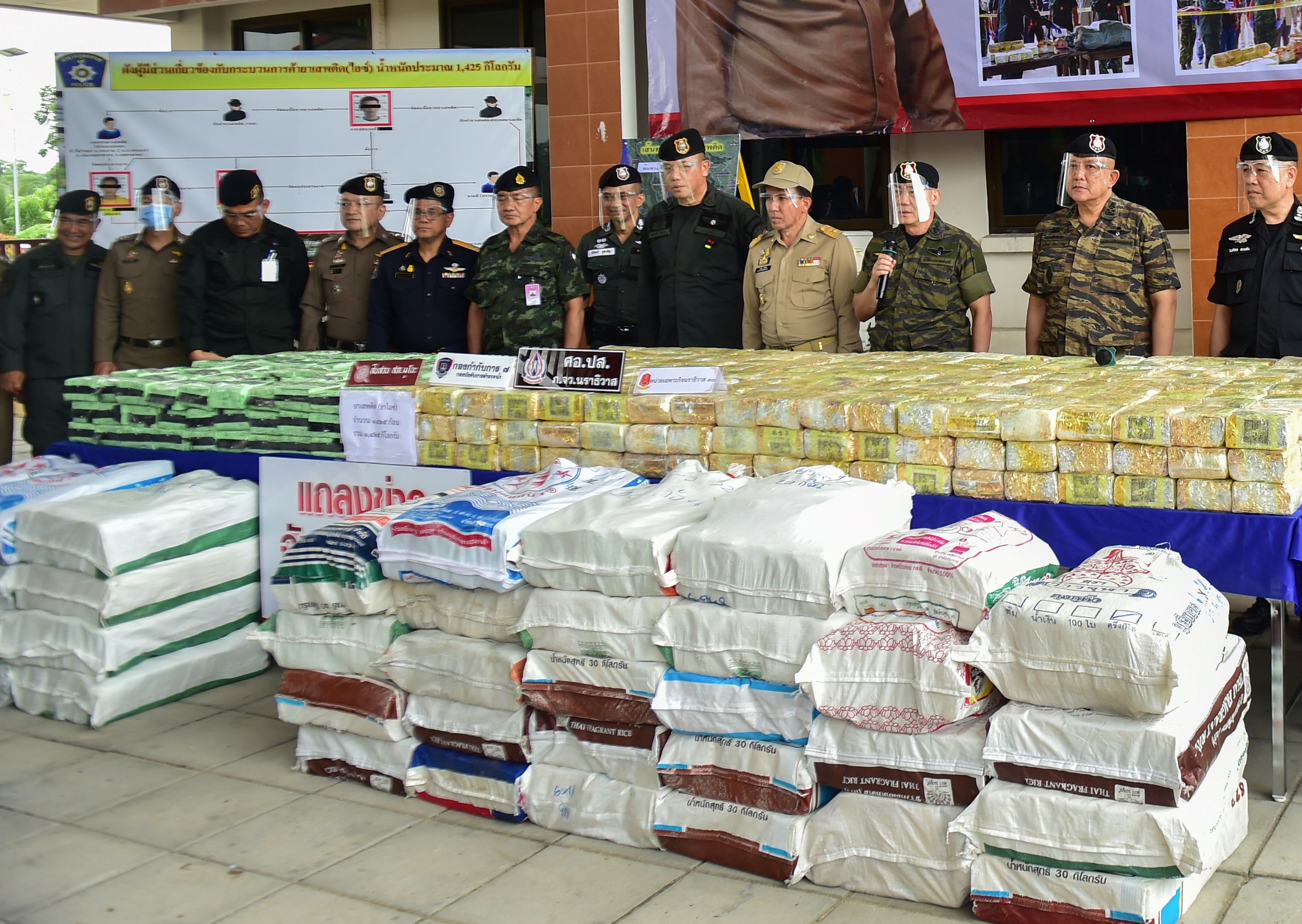Thailand’s record $1bn ketamine bust turns out to be a food additive
The massive drug bust turned is a major faux pas for the authorities, which claimed the haul to be ketamine.

Thailand’s seizure of a whopping $1 billion of ketamine, which was billed as the country’s biggest-ever drug haul, turned out to be food additives and cleaning agents.
The justice minister, who posed for the pictures two weeks ago with the claimed record raid of the drug at a warehouse, admitted on Tuesday the initial information is wrong and the authorities had not made a major breakthrough in the battle against drugs.
"This was a misunderstanding that our agency [narcotics] must accept," he told reporters. "This wasn't a mistake. It's new knowledge," said Somsak Thepsuthin.
The Narcotics Control Board (NCB) on Saturday tested 66 sacks of the 475 bags of recovered substance. The officials stated that the substance is trisodium phosphate, not ketamine.
Trisodium phosphate is a chemical which is used as a food additive and cleaning agent.
In medicine, ketamine is used as an anaesthetic or an anti-depressant, but as a recreational drug it is used to induce dreamy or trance-like sensations, and sometimes hallucinations.
On 12 November, the anti-narcotics agency of the country proudly announced it had found 11.5 tonnes of ketamine worth $1 billion in Chachoengsao province of the country, close to Bangkok.
Justice Minister Thepsutin held a press conference and said the huge shipment came to Thailand by boat. He pointed at the multinational network behind the alleged drug shipment.
The issue grabbed both national and international headlines.
The NCB is now mulling whether to invite drug agencies from the United Nations Office on Drugs and Crime to join the investigation and in testing the remaining substance, according to Bangkok Post.
Join our commenting forum
Join thought-provoking conversations, follow other Independent readers and see their replies
Comments


Bookmark popover
Removed from bookmarks